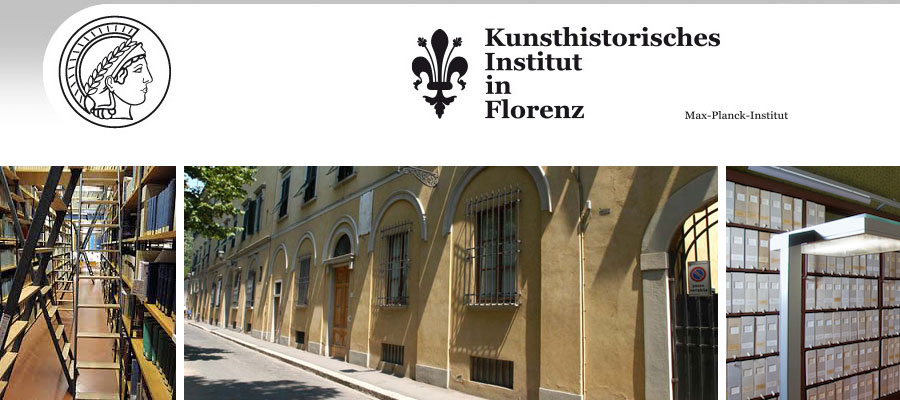The Berlin-based research and fellowship program "4A Laboratory: Art Histories, Archaeologies, Anthropologies, Aesthetics" invites scholars to apply for up to two doctoral and six postdoctoral fellowships for the academic year 2019/2020.
4A LABORATORY is a joint Fellowship Program of the Kunsthistorisches Institut in Florenz, a research institute of the Max-Planck-Society, and the Stiftung Preußischer Kulturbesitz in collaboration with the Humboldt University, Berlin, the Forum Transregional Studies and other partners. The Stiftung Preußischer Kulturbesitz is an internationally outstanding cultural and scientific institution with unique museums, archives, libraries and research facilities; the Kunsthistorisches Institut in Florenz is a globally connected research institute, with a strong agenda in transcultural art histories.
4A Lab connects diverse disciplines, types of collections and multiple institutions in an innovative way. In particular, 4A Lab attempts to foster dialogues and exchanges between art history, archaeology, anthropology and aesthetics, (4 A), as well as other disciplines concerned with objects, practices, environments and narratives (OPEN).
The Fellowship program invites excelling doctoral and postdoctoral researchers from Africa, Asia, the Americas, Australia and Europe to Berlin. The collaboration promotes the close contact with objects, collections and archives. This includes the collections of the Staatliche Museen zu Berlin (Berlin State Museums), i.e., the Ägyptisches Museum und Papyrussammlung (Egyptian Museum and Papyrus Collection), Antikensammlung (Museum of Classical Antiquities), Ethnologisches Museum (Museum of Ethnology), Gemäldegalerie (Picture Gallery), Gipsformerei (Plaster Cast Workshop), Institut für Museumsforschung (Institute for Museum Research), Kunstbibliothek (Art Library), Kunstgewerbemuseum (Museum of Decorative Arts), Kupferstichkabinett (Cabinet of Prints and Drawings), Münzkabinett (Numismatic Collection), Museum Europäischer Kulturen (Museum of European Cultures), Museum für Asiatische Kunst (Museum of Asian Art), Museum für Islamische Kunst (Museum of 'Islamic Art), Museum für Vor- und Frühgeschichte (Museum of Prehistory and Early History), Nationalgalerie (National Gallery, including Hamburger Bahnhof Museum of Contemporary Art), Skulpturensammlung und Museum für Byzantinische Kunst (Museum for Sculpture and Byzantine Art), Vorderasiatisches Museum (Museum of the Ancient Near East), Zentralarchiv (Central Archive), as well as the unique holdings of the Ibero-American Institute, the State Institute for Musicology, the Secret State Archives and the State Library.
The program focuses on OPEN (objects, practices, environments, and narratives) in their historical, social and historiographical dimensions, including histories of collecting and display. It invites researchers to study the materiality, mediality, agency, ecology and mobility of objects and related discourses. Under such premises, the program aims to create a space for dialogue for university and museum scholars in order to strengthen transdisciplinary collaboration in the proximity of objects, to transcend the borders of the 4A disciplines, to combine their skills and to foster a conversation between more conceptual and more empirical approaches. The program aspires to promote transversal networking and critical reflections on historical and contemporary languages and terminologies.
The scholarly environment of the program is designed as a laboratory to enable and encourage both fellows and the wider community to experiment and redefine transregional approaches to the histories of visual cultures and aesthetic practices, including close collaboration between the fellows and the researchers of the two main partners, as well as scholars of Humboldt University, the Forum Transregionale Studien, and other international and national academic institutions. The program includes joint activities in Berlin, Florence and additional locations. The dialogue is structured by an annual theme, which will be presented and discussed in seminars, workshops, conferences and the like. The annual theme of the academic year 2019/2020 is Plants. The program welcomes projects from a wide range of topics relating to plants that place emphasis on aesthetic processes, history of thought, and material culture, from the 4A disciplines but also from philosophical or literary studies, in a transregional perspective.
4A Lab takes an active part in transdisciplinary debates concerning a new understanding of provenance and the postcolonial – or rather post-postcolonial – responsibilities of museums and collections. It therefore investigates historical itineraries, complex topographies and biographies of objects from transregional perspectives. The emphasis is not on the single object "in context" but on historically constituted and constantly shifting environments of objects between stability and mobility, as well as in their social, religious, political or aesthetic dimensions. This includes publics and all kind of actors, and the consideration of museums as an eco-system – with their interconnected formats of temporary exhibition, permanent display and storage, constellations of architecture and design, in relation to a variety of visitors, and finally their extension into digital environments. Distinctions between nature, culture and art, craft or material culture, which have dominated museum structures or were supported by them, are now, at best, the framework for narratives to expose or nullify them. 4A Lab invites outstanding international doctoral and postdoctoral scholars to help to shape these horizons, and to take a lead, as part of a group, in an intercultural dialogue across disciplines.
Candidates
Applicants should have obtained their master's degree or their doctorate (within the last seven years prior to their application) in one of the relevant disciplines. We welcome applications from all regions, with various disciplinary formations, such as Art History, Aesthetics, Archaeology, Anthropology/Ethnology, History and neighboring fields dealing with artifacts, artistic production, material culture, and aesthetic practices relating to objects, images, languages and architectures.
